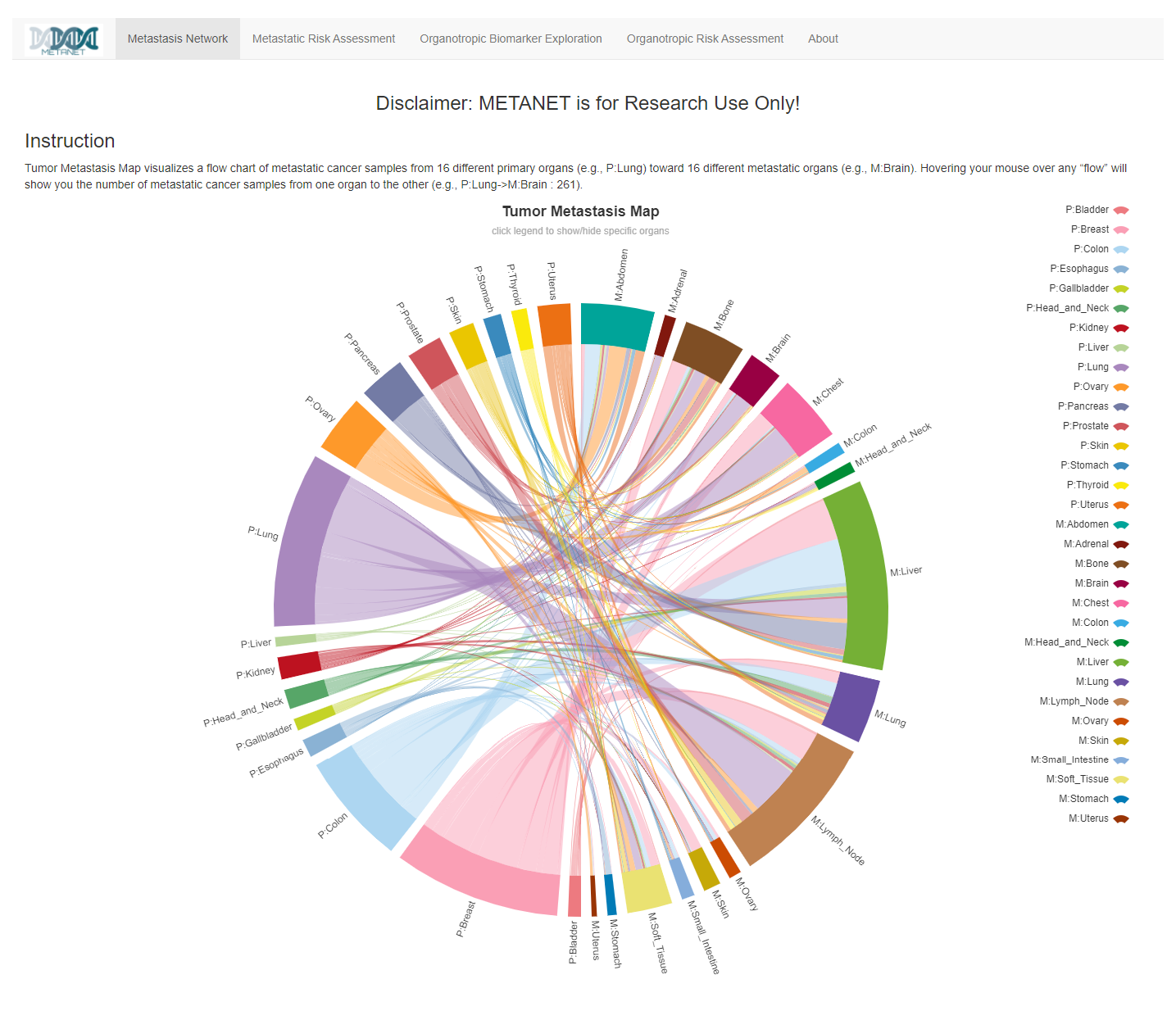
Metastatic cancer is associated with poor patient prognosis, but its spatiotemporal behavior remains unpredictable at an early stage. Prof. Jiguang Wang and his team developed a computational framework (termed MetaNet) that integrates clinical and sequencing data from 30K cancers to assess the metastatic risk of primary tumors. MetaNet can detect genomic changes associated with organ-specific metastases and classify patients into various risk groups. Their work published in Nature Communications will improve the current staging and prognostication of metastatic cancer.
Metastasis, the dissemination of tumor cells to distant organs, is thought to cause most cancer deaths. However, early diagnosis of metastasis remains challenging through the current standard TNM system, which classifies patients according to primary tumor size (T), lymph node spread (N), and detection of metastases (M). Previous studies have observed that metastatic tumor cells can enter a dormant state without growth upon reaching distant organs.
In this study, the research team developed a Metastatic Network model (MetaNet) to assess metastatic risk and potential target organs by collecting and analyzing a total of 32,176 pan-cancer DNA sequencing samples. Using this cohort of large data, they identified genomic biomarkers associated with common and organotypic metastases. In addition, they used a machine learning model to distinguish a distinctive subtype, namely Metastasis-Featuring Primary, with shorter disease-free survival than Conventional Primary patients.
From the biomarkers involved in brain metastasis of lung cancer, the research team detected a significant abundance of PI3K pathway aberrations and verified with a biopharmaceutical database targeting MTOR since MTOR is a highly effective treatment of brain metastatic lung cancer. Consequently, they established a computational model that stratifies patients with primary prostate cancer into subgroups predisposed to bone or liver metastases to inform future organ-specific follow-up investigations. They also developed a MetaNet web application available at https://wanglab.shinyapps.io/metanet to facilitate metastatic risk assessment and validation of other organic biomarkers.
MetaNet has the potential to help oncologists assess the risk of metastasis and recurrence in patients with primary cancer, particularly in determining whether surgical removal is required. Also, the online application provides a public platform for other cancer biologists interested in metastasis to investigate biomarker candidates.
Jiang, B., Mu, Q., Qiu, F. et al. Machine learning of genomic features in organotropic metastases stratifies progression risk of primary tumors. Nat Commun 12, 6692 (2021). https://doi.org/10.1038/s41467-021-27017-w